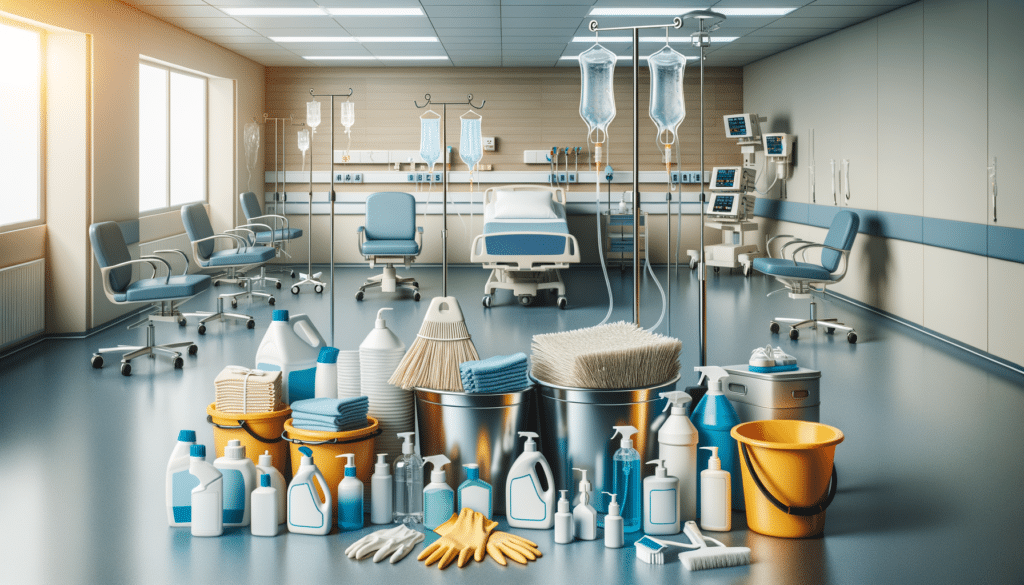The Importance of Hospital Cleaning Services
Hospital cleaning services are integral to maintaining a sterile and safe environment in healthcare facilities. These services play a crucial role in preventing the spread of infections and ensuring the well-being of both patients and healthcare staff. The importance of these services cannot be overstated, as hospitals are environments where germs and bacteria can thrive if not properly managed. Infections acquired in hospitals, known as nosocomial infections, pose significant risks to patient health and can lead to increased healthcare costs.
Hospital cleaning services focus on various aspects of cleanliness, including the sterilization of medical equipment, disinfection of surfaces, and proper waste management. These tasks are essential in minimizing the risk of infection transmission. According to the Centers for Disease Control and Prevention (CDC), healthcare-associated infections affect approximately 1 in 31 hospital patients on any given day, highlighting the critical need for effective cleaning protocols.
Furthermore, the COVID-19 pandemic has underscored the importance of hospital cleaning services in controlling the spread of viruses. Enhanced cleaning protocols, such as frequent disinfection of high-touch surfaces and the use of hospital-grade disinfectants, have become standard practice. These measures not only protect patients but also instill confidence in the safety of healthcare environments.
Key Components of Hospital Cleaning Services
Effective hospital cleaning services encompass several key components to ensure comprehensive hygiene and safety. These include:
- Routine Cleaning: Regular cleaning schedules are established to maintain cleanliness in patient rooms, operating theaters, and common areas.
- Disinfection: High-touch surfaces, such as doorknobs, bed rails, and medical equipment, are frequently disinfected to reduce the risk of infection transmission.
- Waste Management: Proper disposal of medical waste, including sharps and biohazard materials, is crucial to prevent contamination and ensure safety.
- Specialized Cleaning: Certain areas, such as isolation rooms and surgical suites, require specialized cleaning procedures to meet stringent hygiene standards.
Each of these components is essential in maintaining a safe and hygienic hospital environment. The use of advanced cleaning technologies, such as ultraviolet (UV) light disinfection and electrostatic sprayers, further enhances the effectiveness of cleaning services.
Challenges Faced by Hospital Cleaning Services
Despite the critical role of hospital cleaning services, they face several challenges in ensuring optimal cleanliness. One of the primary challenges is the need for continuous training and education of cleaning staff. As new pathogens emerge and cleaning technologies evolve, staff must be equipped with the latest knowledge and skills to effectively perform their duties.
Another challenge is the high turnover rate among cleaning staff, which can impact the consistency and quality of cleaning services. Ensuring adequate staffing levels and providing competitive wages and benefits are essential to retaining skilled personnel. Additionally, budget constraints in healthcare facilities can limit the resources available for cleaning services, potentially compromising the quality of hygiene standards.
To address these challenges, hospitals must prioritize investment in cleaning services and foster a culture of safety and hygiene. Collaboration between cleaning staff, healthcare professionals, and infection control teams is crucial in developing effective cleaning protocols and ensuring adherence to best practices.
The Future of Hospital Cleaning Services
The future of hospital cleaning services is likely to be shaped by advancements in technology and a growing emphasis on sustainability. Innovations such as robotic cleaning systems and smart sensors are expected to enhance the efficiency and effectiveness of cleaning processes. These technologies can automate routine cleaning tasks, allowing staff to focus on more complex cleaning needs.
Sustainability is also becoming a key consideration in hospital cleaning services. Eco-friendly cleaning products and practices are increasingly being adopted to reduce the environmental impact of cleaning activities. Hospitals are exploring ways to minimize waste and conserve resources while maintaining high hygiene standards.
Moreover, the integration of data analytics and artificial intelligence (AI) in cleaning services can provide valuable insights into cleaning performance and identify areas for improvement. By leveraging data-driven approaches, hospitals can optimize cleaning schedules, allocate resources more efficiently, and enhance overall safety and hygiene.
Conclusion
In conclusion, hospital cleaning services are vital for maintaining a safe and hygienic environment in healthcare settings. These services play a critical role in preventing infections, ensuring patient and staff safety, and enhancing the overall quality of care. Despite the challenges faced, advancements in technology and a focus on sustainability offer promising opportunities for the future of hospital cleaning services. By prioritizing investment in cleaning services and fostering collaboration among stakeholders, hospitals can continue to provide safe and hygienic environments for all.





